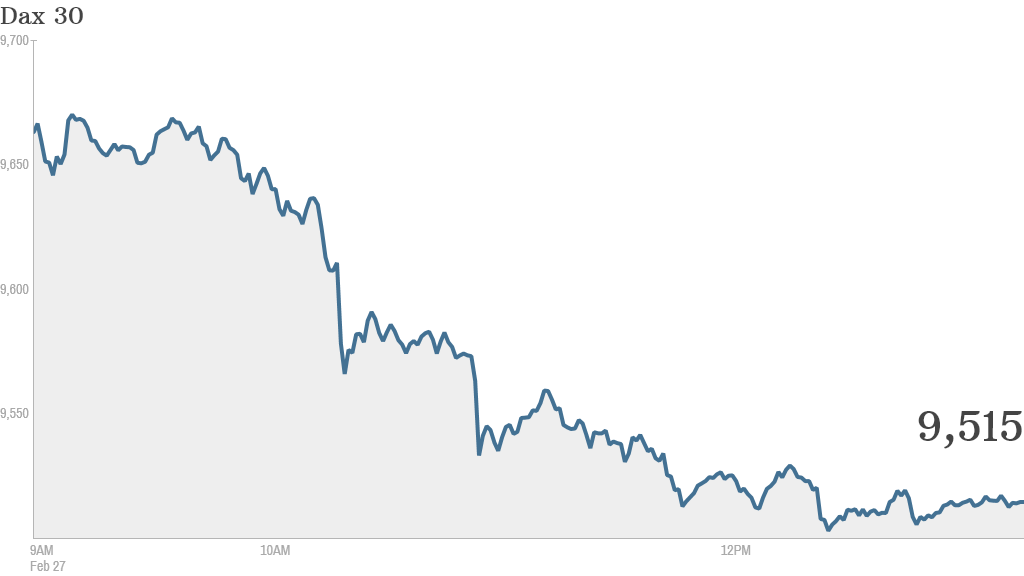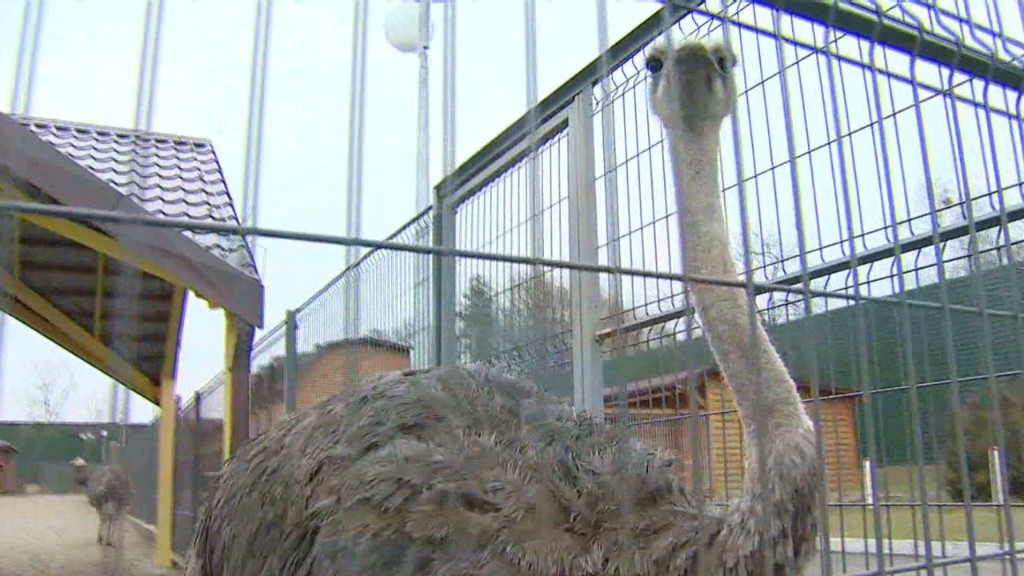
Fear that Russia could be drawn into a conflict in Ukraine rattled world markets Thursday.
Stock markets fell and the dollar, Swiss franc and gold gained as investors sought refuge in traditional "safe haven" assets.
Financial fallout from last week's removal of a pro-Russian government in Ukraine had been largely limited to the currencies of both countries.
But the crisis spilled onto world markets after armed men occupied government buildings in the Ukrainian region of Crimea and raised the Russian flag, a day after Moscow ordered massive military exercises just across the border.
"That Russia's leadership would react negatively to the overthrow of a pro-Moscow administration in Kiev is hardly a surprise," wrote Kit Juckes, global strategist for Societe Generale in London. "But the market's mood has soured somewhat at the latest developments and risk appetite has been hit."
All Europe's major indexes were in the red, with Germany's DAX suffering the most. It stood 1% lower in afternoon trade. U.S. stock markets were flat.
Related: CNN coverage of Ukraine
The dollar gained ground against the euro and central European currencies, while gold was 0.5% firmer.
Three months of mass protests in the capital Kiev culminated in last week's ousting of President Viktor Yanukovych. He had sought closer ties with Moscow, angering many Ukrainians who want the country to embrace the European Union.
Yanukovych fled -- his whereabouts are still unknown -- but he retains significant support among many Russian speakers in Ukraine's east and south, including Crimea, home to Russia's Black Sea naval fleet.

The political turmoil has left Ukraine staring bankruptcy in the face. Russia has frozen a $15 billion lifeline it offered late last year. Western powers have yet to agree to emergency support to keep the economy running for the next few months while the nation holds new elections and negotiates a formal bailout with the International Monetary Fund.
The U.S. is considering $1 billion in loan guarantees for Kiev. But the country will need much more help than that. Acting finance minister Yuriy Kolobov said Monday that Ukraine needs $35 billion over the next two years.
The International Monetary Fund confirmed Thursday it had received a request for help. An IMF team will arrive in Kiev next week to make its own assessment of the situation and begin talks on the economic reforms a bailout would require.
The IMF was ready to work with the interim government and could move quickly if necessary, a spokesman said.
"We are also discussing with all our international partners -- bilateral and multilateral -- how best to help Ukraine at this critical moment in its history," Managing Director Christine Lagarde said in a statement.
Related: What next for Ukraine's economy?
Ukraine has about $13 billion worth of debt due this year, including a $1 billion bond in June, arrears on Russian gas imports, and about $3 billion owed to the IMF.
Its foreign currency reserves have fallen so low that the central bank has been forced to abandon support for the currency -- the hrvynia. It plunged 10% Thursday and has now lost over a third of its value against the dollar since the start of the year.
Even if conflict is avoided, some analysts fear that Ukraine's depressed economy will be torn apart by tensions between Russia and the EU -- its two biggest trading partners.
"A replay of the Cold War would cause immense damage to both Russia and Europe, and most of all to Ukraine, which is situated between them," wrote hedge fund heavyweight George Soros this week. "Ukraine depends on Russian gas, and it needs access to European markets for its products; it must have good relations with both sides."
-- CNNMoney's Jennifer Liberto contributed to this article.


